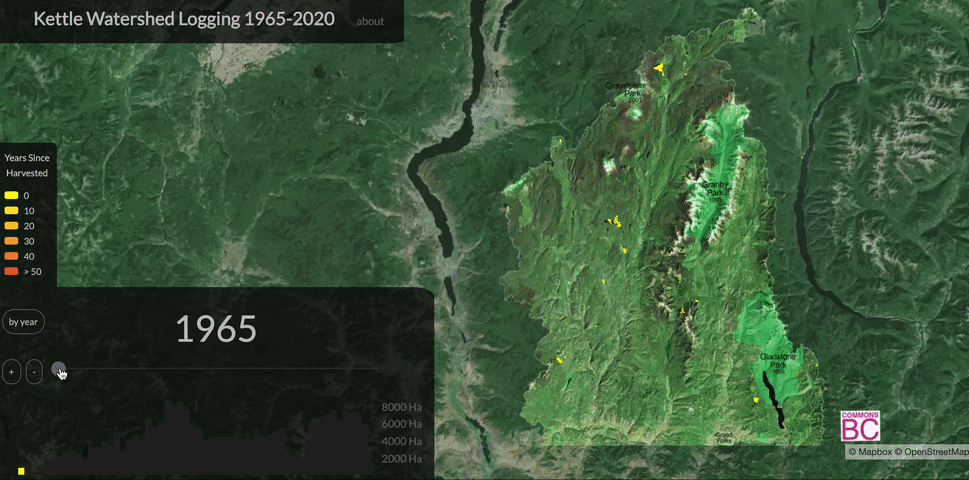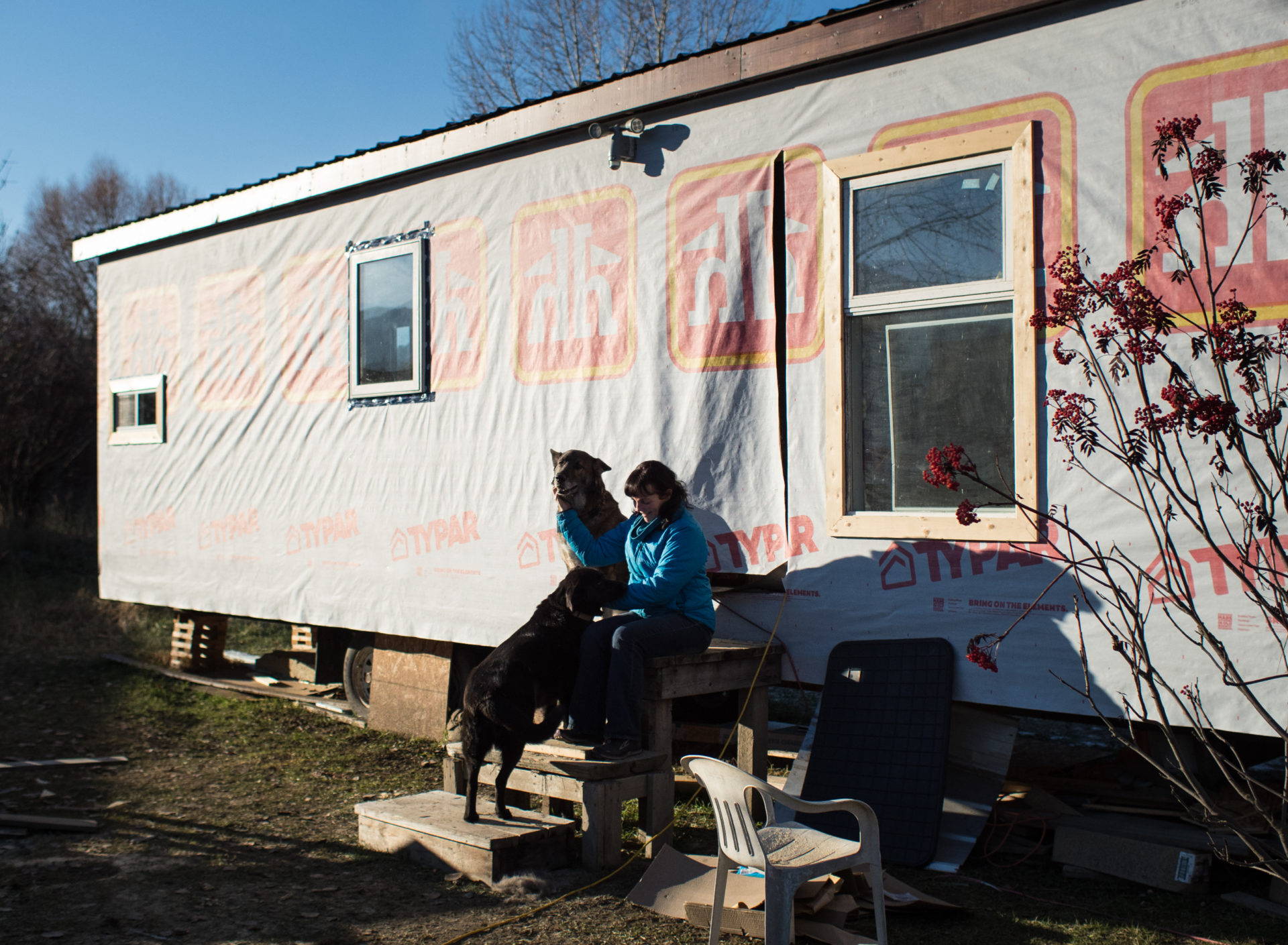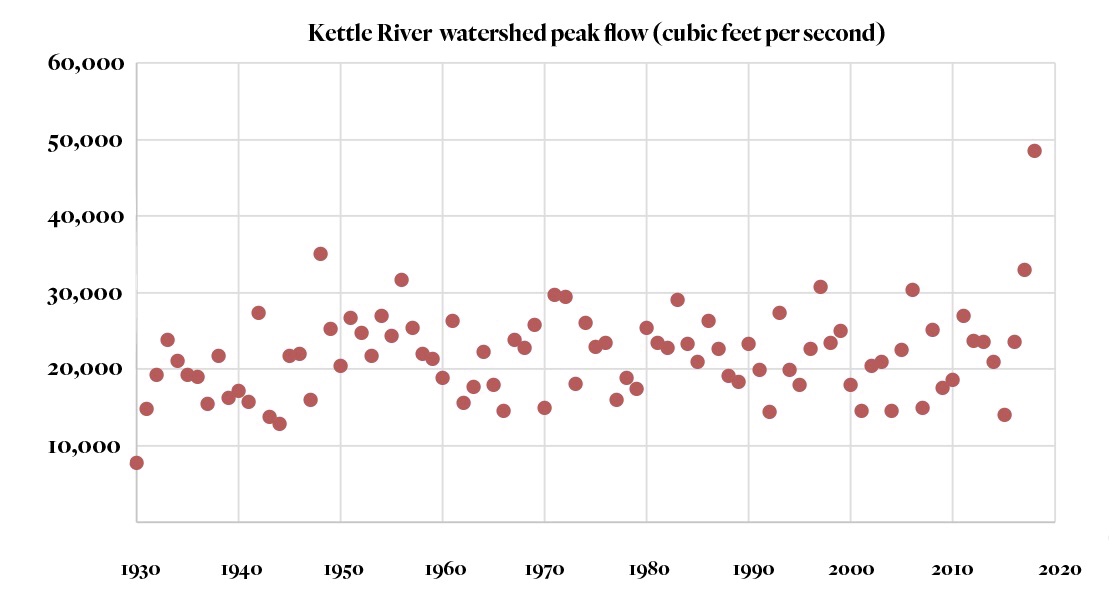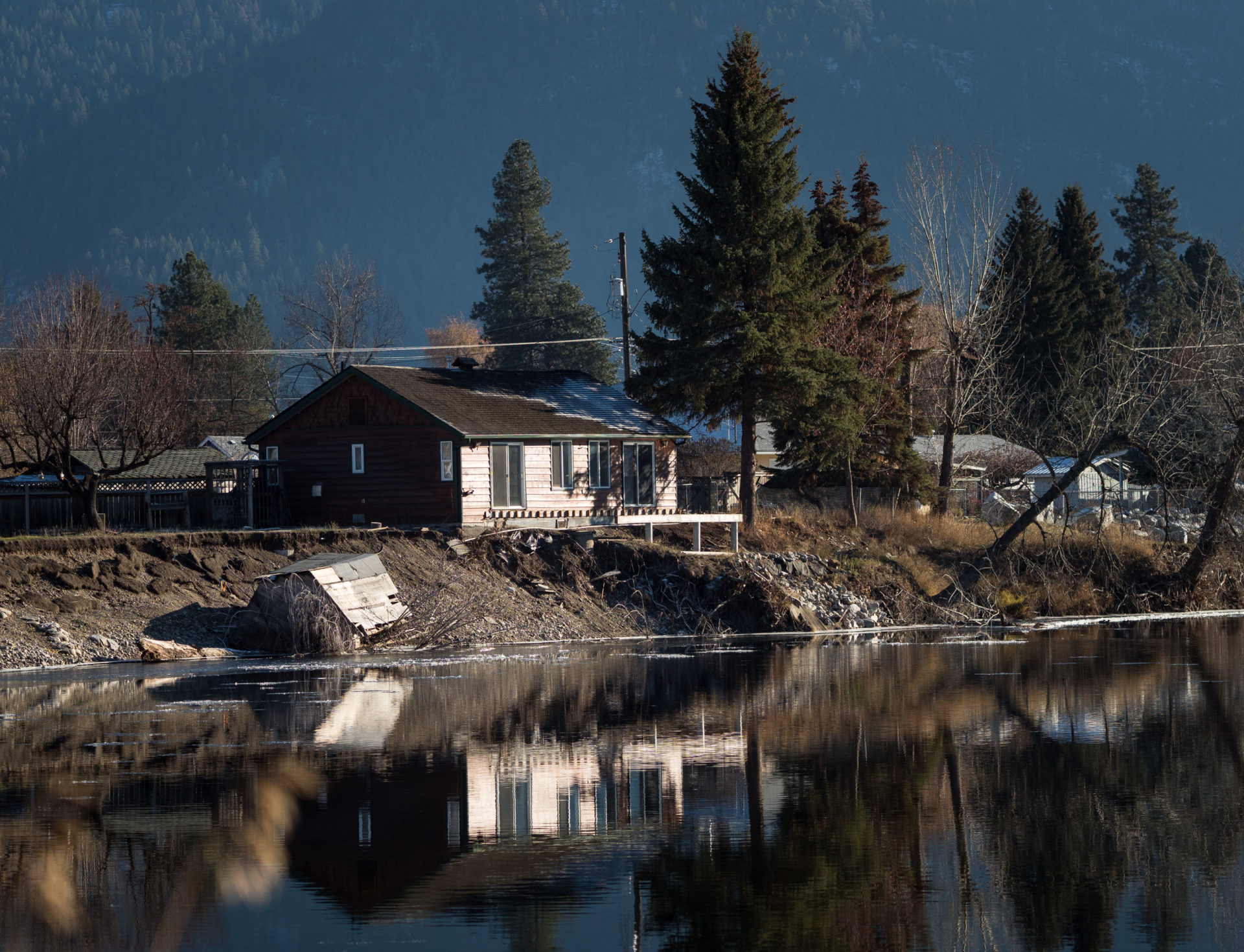
Celebrating 7 years of The Narwhal — and gearing up for the next 7
Between a fresh take on engagement and our new life on video, our team is...
Two years after a catastrophic flood caused tens of millions of dollars in damage to homes and businesses in the Grand Forks area, the B.C. government and several timber companies are being sued on grounds that excessive logging caused the devastation.
In a notice of civil claim filed in B.C. Supreme Court by Peter Waldmann, a lawyer specializing in class action lawsuits, B.C.’s Ministry of Forests, Lands and Natural Resource Operations, the major logging companies Interfor, Weyerhaeuser and Tolko, three First Nation-owned companies and pulp producer Mercer Celgar are accused of negligence for logging local forests too quickly, creating the conditions that caused the devastating flooding in May 2018.
The claim alleges that too much clear-cut logging occurred on lands higher up mountain slopes where deep snow packs can build, releasing torrents of water in the spring; many of the clear-cuts greatly exceeded size limits; road networks were excessive; too many trees were logged before previously logged forests had recovered sufficiently, and that all of this and more set the stage for the devastating flooding that began on May 8, 2018.
“The defendants’ overharvesting of timber resources has significantly increased the rate of sedimentation from their land, increased the stream flow into the Kettle Basin watershed and increased the frequency, duration and magnitude of major flooding events,” the civil claim alleges.
Three Grand Forks residents or family members of residents whose homes were either destroyed or seriously damaged during the flood are named as plaintiffs in the claim. It is expected that others whose homes, properties and livelihoods were disrupted by the flood will join as part of a broader class action or civil lawsuit in which damages are being sought.
The “proposed class” in the Grand Forks case are “all persons” living within 15 kilometres of the community whose homes, businesses, health or livelihoods were “lost or destroyed” in the extensive flooding.

Logging in the Kettle River watershed between 1965 and 2020. Grand Forks is located toward the southern border. Map: Commons BC
Of the three major logging companies named in the claim, Interfor’s operations are notably singled out. The company has by far the largest share of logging rights in the region, and owns and operates a sawmill in Grand Forks.
“The defendant, Interfor, has unsustainably clear-cut tens of thousands of hectares of land during the last several decades in the Kettle River basin and has extensively profited from the timber resources. This has increased the frequency, duration and magnitude of peak flows that resulted in the May 8-11, 2018 flooding event,” the claim alleges.
The Narwhal, which reported extensively on the human toll of the flooding and on allegations by Grand Forks residents and independent foresters and hydrologists that logging was behind the flooding, asked the company to respond and received a short email in reply.
“We are aware of this claim and cannot provide much comment on pending litigation, except to say that Interfor has acted in accordance with its permits, licences and applicable regulations, and intends to defend itself fully,” said Xenia Kristos, Interfor’s chief counsel and corporate secretary.
Jennifer Houghton, one of the plaintiffs, had two feet of water in her home when flooding occurred in 2017. Worse flooding the following spring doubled the amount of water in her home, prompting the yoga teacher and local realtor to build a small home on wheels so that she could get it out of harm’s way if another flood occurred.

Jennifer Houghton on the steps of her unfinished tiny home with her two dogs in 2018. She planned to move her new home if spring runoffs threatened her property again in the future. Photo: Louis Bockner / The Narwhal
Houghton declined to comment on the civil suit on the advice of Waldmann. She did say that what has been filed with the court thoroughly captures what she and others believe are the relevant events that increased the severity of the floods and that upended her life and the lives of so many others in her community.
“I think that the lawyers did a very thorough job of putting the filing together. I’ve put my faith in them,” Houghton told The Narwhal.
Next to Interfor, the provincial government itself is directly responsible for much of the logging that is alleged to have caused the horrendous flooding. BC Timber Sales is an arm of the Ministry of Forests that auctions blocks of forest for logging on a one-time basis, whereas the logging by Interfor and other companies is done under long-term licences awarded by the Ministry of Forests and covering multiple years. The claim alleges that BC Timber Sales had “the responsibility to establish and auction” those forests in ways that “sustainably managed” water runoff from those lands.
But that didn’t happen for a number of reasons, the claim contends.
Both logging under the BC Timber Sales program and logging by Interfor and others often resulted in clear-cuts that were larger than the 40-hectare limit set out in regulations. The lawsuit alleges that for 20 years beginning in 1998, fully 41 per cent of all the logging cutblocks in the Kettle River basin, which feeds into the Grand Forks area, were larger than 40 hectares in size. And BC Timber Sales was the worst offender, with fully half of the cutblocks on lands that it auctioned for logging exceeding 40 hectares.

Peak flow of the Kettle River. Data from the United States Geological Survey. Graph: Carol Linnitt / The Narwhal
In addition, the vast majority of clear-cuts were on lands higher up hills and mountain slopes in the region, where snow packs are deeper and become major sources of water as temperatures climb and the sun beats down on exposed snow in the cutblocks. The lawsuit alleges that in the four years ending in 2017, right before the devastating 2018 flood, 69 per cent of all the cutblocks were in that critical zone.
The larger cutblocks meant that more snow accumulated on the ground where it was not shaded by trees, which made it prone to a fast melt.
Regulations were also in place that were supposed to limit how many forests could be logged based on the healthy regrowth of trees in nearby areas that had been previously logged. That re-growth is known in forest industry parlance as “green-up.” But the suit alleges that healthy green-up in previously logged areas had not been achieved before new logging commenced, even though senior Ministry of Forests personnel had been warned this was endangering the “hydrological recovery” of logged lands, leading to increases in peak water flows.

A house in South Ruckle, one of the Grand Forks neighbourhoods most affected by the 2018 spring flood, was spared falling into the Kettle River. A small shed adjacent to it wasn’t so lucky. Photo: Louis Bockner / The Narwhal
The suit also alleges the Ministry of Forests, which has key powers to set the rate at which forests are logged, used a suspect computer model for predicting how much forest was available to be logged. The model actually over-estimated how much forest was available by 20 per cent, according to the suit. Based on this, the ministry’s chief forester allocated more timber to logging companies than was “available and sustainable for the region.”
“This has led to increasing the frequency, duration and magnitude of peak flows. Without sufficient timber regrowth and watershed recovery the result is increased sediment transport, increased water quantity and stream channel discharge associated with flooding that caused the major flooding events in the Kettle and Granby river systems resulting in the damages to the plaintiffs’ and class members’ property,” the suit alleges.
The Narwhal asked the ministry for comment, but it refused to respond saying that it would be “inappropriate” to do so given that the matter is now before the courts.
Anthony Britneff, who worked at several senior positions during his 40 years as a professional forester employed by the ministry, has kept a close eye on events in the Grand Forks area since his retirement and has been highly critical of logging rates and road-building in the region and the threats posed to grizzly bear populations.
He said the filing of the claim could be a pivotal moment in ongoing disputes across the province about how forests are managed, particularly in community watersheds.
“This is a landmark lawsuit,” Britneff told The Narwhal in an email. “The allegations likely apply to many watersheds throughout B.C.’s southern interior. If other communities, First Nations, farmers and ranchers dependent on water have incurred damage due to drought or flooding caused by upstream logging, then they should consider joining this class action. Good luck to the residents of Grand Forks; they deserve full restitution.”

A poster in a downtown Grand Forks coffee shop offers a help line for residents feeling frustrated and overwhelmed with life after the floods. Photo: Louis Bockner / The Narwhal
Contacted at his law offices in Toronto, Waldmann said it can be anticipated that if the matter proceeds to trial, arguments may be made by the defendants that a whole host of things caused or contributed to the flooding.
“There are multiple causes of everything in life. And you have to put before the court scientific evidence that this is the one that really matters,” Waldmann told The Narwhal. “Our basic test is whether the actions of the defendants contributed to or were part of what caused the harm, even if it wasn’t the only factor.”
Get the inside scoop on The Narwhal’s environment and climate reporting by signing up for our free newsletter. On a warm September evening nearly 15...
Continue reading
Between a fresh take on engagement and our new life on video, our team is...

The public has a few days left to comment on Doug Ford’s omnibus development bill....

115 billion litres, 70 years to fix, $5.5 billion in lawsuits
